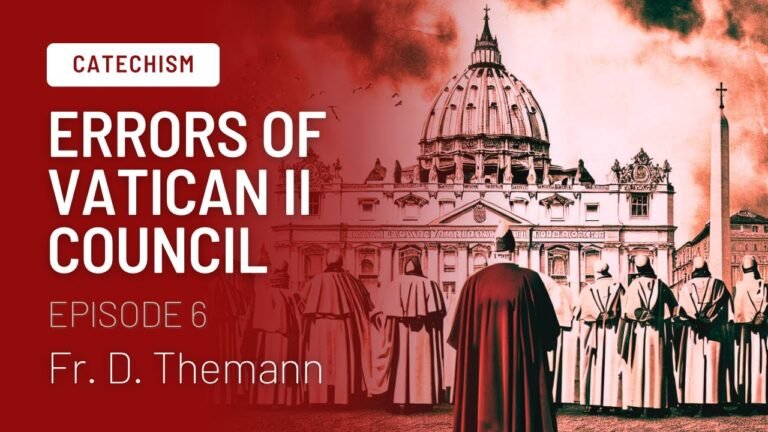Biblical Perspectives on Evolution
The intersection of faith and science has long sparked debate, particularly when it comes to the topic of evolution. Many people wonder: what does the Bible say about evolution? This question invites exploration into the scriptural texts and interpretations that shape our understanding of creation and the origins of life. As we delve into this complex dialogue, we will uncover varying perspectives that illuminate how religious beliefs can coexist with scientific discoveries, offering insights that enrich both our spiritual and intellectual journeys.
What biblical insights address the concept of evolution?
The Bible doesn’t explicitly mention evolution, but some interpret Genesis as compatible with evolutionary processes, emphasizing God’s role in creation. Interpretations vary among believers.
What is the Bible’s definition of evolution?
The Bible presents a unique perspective on creation, suggesting that evolution may be considered one of God’s tools in the ongoing process of life. This concept is supported by passages such as Acts 1:24-26, which reflect the belief that divine influence is present in the unfolding of life. Through this lens, evolution is not merely a scientific theory but intertwined with the spiritual narrative of God’s interaction with the world.
Moreover, many Christians embrace the idea that creation is not limited to a singular event but is an ongoing phenomenon. This perspective acknowledges that God’s creative power is continually at work, shaping and renewing the lives of believers. The belief in a dynamic creation allows for the coexistence of faith and scientific understanding, fostering a sense of wonder about the complexities of life.
As such, the Bible invites believers to view evolution as part of a divine tapestry, woven with purpose and intention. This understanding encourages a harmonious relationship between faith and science, inspiring individuals to appreciate the beauty of creation and the continuous growth it represents in both nature and spirituality.
Does Christianity accept the concept of evolution?
Many Christians find a harmonious relationship between their faith and scientific understanding, particularly when it comes to concepts like evolution. A significant number of believers accept the scientific consensus on an old Earth and the process of evolution, viewing these findings as compatible with their spiritual beliefs. This perspective is often referred to as evolutionary creationism or BioLogos.
By embracing evolutionary creationism, these Christians affirm that God is the ultimate source of all life while also recognizing the role of natural processes in the development of species. This approach allows them to appreciate the beauty and complexity of creation without feeling the need to reject established scientific principles, fostering a dialogue between faith and science that enriches both realms.
What are Jesus’ views on evolution?
While Jesus did not directly address the concept of evolution, his teachings emphasize the divine creation of humanity, as seen in Matthew 19:4–5 where he states that God created humans as male and female from the very beginning. This assertion highlights a foundational belief in the unique and special creation of human beings, distinct from other forms of life.
Furthermore, the Apostle Paul reinforces this idea in Romans 5:12, indicating that death entered the world through man. This perspective suggests a timeline in which human existence is central to the narrative of life and death, raising questions about the compatibility of evolutionary theory with traditional interpretations of biblical creation. The interplay between these interpretations continues to provoke thoughtful discussions in both theological and scientific communities.
Bridging Faith and Science: Understanding Creation
The intersection of faith and science offers a unique opportunity to explore the wonders of creation through complementary lenses. While science provides empirical evidence and understanding of the natural world, faith enriches our appreciation for the mysteries that lie beyond mere observation. By embracing both perspectives, we can foster a deeper connection to our origins, recognizing that the intricate patterns of the universe may point to a higher purpose. This harmonious relationship encourages dialogue and curiosity, inviting us to delve into the profound questions of existence while appreciating the beauty of the world around us.
The Divine Design: Aligning Scripture with Natural History
Exploring the intricate relationship between scripture and natural history reveals a profound harmony that speaks to the divine design of our world. From the meticulous order of creation narratives to the awe-inspiring complexity of ecosystems, both realms invite us to reflect on the purpose and interconnectedness of life. As we delve into the depths of ancient texts and the wonders of the natural world, we uncover a narrative that transcends time, revealing a Creator’s hand in every detail—from the formation of mountains to the delicate balance of species. This alignment not only enriches our understanding of faith but also deepens our appreciation for the breathtaking beauty and intricacy of the universe around us.
Genesis Meets Genetics: Exploring Theological Insights
The intersection of theology and genetics opens a fascinating dialogue about the origins of life and the nature of existence. As we delve into the narratives of creation found in ancient texts, we begin to see parallels with modern scientific discoveries in genetics. This convergence invites a deeper understanding of how divine intention may intertwine with biological processes, prompting us to reconsider our place in the universe as both spiritual beings and biological entities.
Moreover, exploring these theological insights sheds light on the ethical implications of genetic advancements. The ability to manipulate life at its most fundamental level raises profound questions about the sanctity of creation and our responsibilities as stewards of genetic innovation. By reflecting on scriptural teachings alongside contemporary genetic research, we can navigate the moral landscape with a sense of purpose, ensuring that our actions align with the values of compassion and respect for life.
Ultimately, the fusion of Genesis and genetics encourages a holistic view of humanity that embraces both faith and science. This integrated perspective allows us to appreciate the complexity of our origins while fostering a sense of wonder about the intricate design of life. As we continue to explore this rich terrain, we are reminded that understanding our beginnings can empower us to shape a future where ethical considerations guide scientific progress, ensuring that our advancements honor both our spiritual heritage and our shared humanity.
Faithful Inquiry: Reconciling Belief and Evolutionary Theory
In the ongoing dialogue between faith and science, a harmonious coexistence is not only possible but essential for a deeper understanding of our existence. Many individuals grapple with the apparent conflict between religious beliefs and evolutionary theory, often viewing them as mutually exclusive. However, a faithful inquiry into both realms can reveal that they address different questions about human life: while faith provides purpose and moral guidance, evolutionary theory offers insights into the mechanisms of life’s development over time.
This reconciliation invites believers to explore the richness of their faith through the lens of scientific discovery. By appreciating evolution as a dynamic process that reflects the complexity of creation, individuals can see their beliefs as compatible with scientific insights. Engaging with evolutionary theory does not diminish the divine; instead, it enriches the appreciation of the natural world and the intricate designs within it. Such an approach encourages a mindset of curiosity and wonder, fostering an environment where faith and reason can thrive together.
Ultimately, the journey towards reconciling belief and evolutionary theory is one of exploration and growth. It challenges individuals to ask profound questions and seek answers that honor both their spiritual convictions and the scientific truths that shape our understanding of life. In doing so, we create a more holistic worldview that embraces the mysteries of existence, encouraging a dialogue that respects both the sacred and the scientific as complementary paths to knowledge and understanding.
The relationship between the Bible and evolution invites a thoughtful exploration of faith and science, encouraging believers to engage with both spiritual texts and scientific discoveries. By examining various interpretations of scripture alongside evolutionary theory, individuals can cultivate a deeper understanding of creation that harmonizes their beliefs with scientific insights. Ultimately, this dialogue enriches both spiritual life and intellectual inquiry, fostering a more nuanced perspective on the origins of life.




